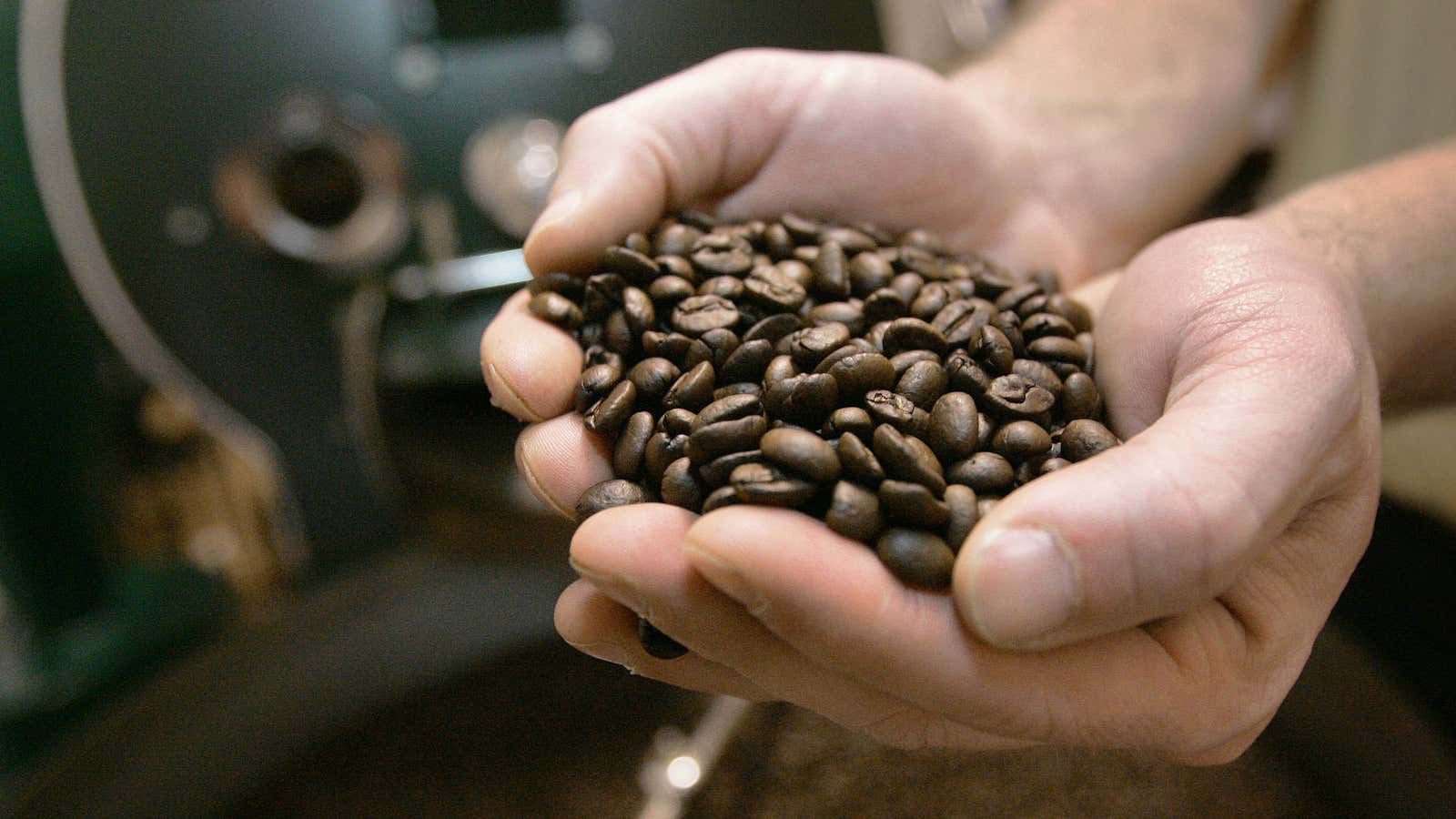Americans love coffee—and while there is plenty of evidence showing the health benefits to those drinking it—new findings show that processing coffee beans could pose serious hazards to workers.
Commercial coffee production may be causing a potentially fatal lung disease called bronchiolitis obliterans, in which small airways become scarred and blocked, the Milwaukee Wisconsin Journal Sentinel reports. The news comes from a study by researchers from the US Centers for Disease Control and Prevention, published on Nov. 2 in the American Journal of Industrial Medicine. After examining 69 workers from a Texas coffee roasting facility, the researchers found that 11 of them had bronchiolitis obliterans. Five other workers from the plant had been previously diagnosed with the rare disease.
Experts are pointing to two chemicals that are likely causing the disease—diacetyl and 2,3-pentanedione—which are formed during the roasting process and then released at higher concentrations during the grinding. Monday’s report follows a warning posted by the CDC in September, which tells coffee processors that the air they are breathing may be toxic to their health and advises them to be on alert for respiratory problems.
The Sentinal published an investigative report in February on the dangers of diacetyl and 2,3-pentanedione, which aside from forming in coffee roasting are also naturally found in butter, wine and other drinks—and made synthetically for use as artificial flavoring. Bronchiolitis obliterans is sometimes called “popcorn lung” because diacetyl is often added to microwave popcorn for a buttery taste. After many popcorn factory workers developed the disease, some manufacturers stopped using it.
Though deemed safe for consumers to ingest at very low levels through chips, baked good and candy, one Colorado man successfully sued a popcorn manufacturer on the basis that eating their products for 10 years gave him the disease. He was awarded $7.2 million. The chemicals are much more dangerous when inhaled, though, especially at high levels, like those found in the Texas facility.
While the National Institute of Occupational Safety and Health (NIOSH) is in the process of drafting exposure limits for these chemicals, they are currently unregulated. Workers are encouraged, however, to wear respirators until the plants are refitted with, for example, better ventilation to make the air less toxic.
In the meantime, coffee lovers may want to consider investing in a coffee grinder and doing the dirty work at home, and maybe outdoors.
